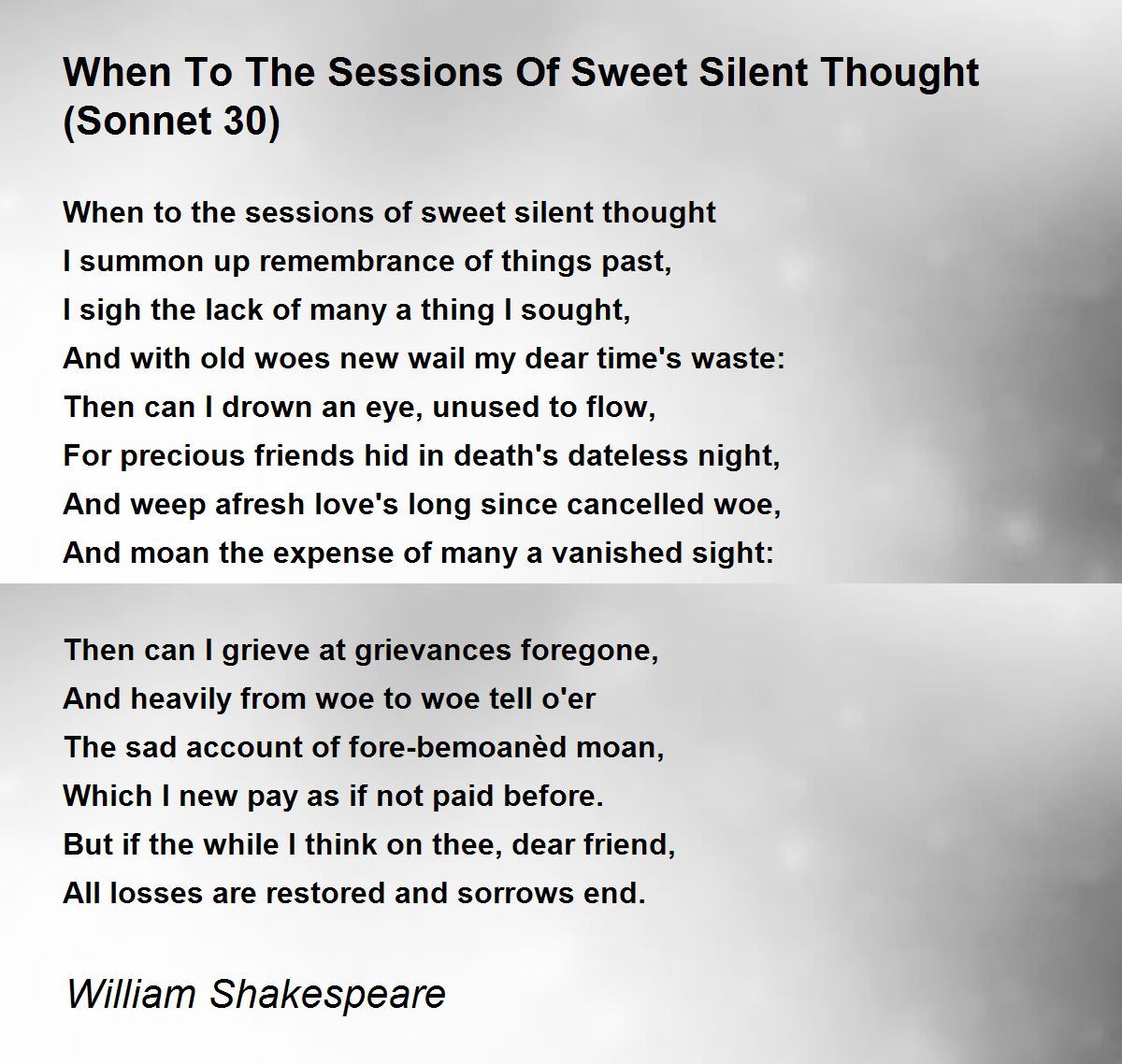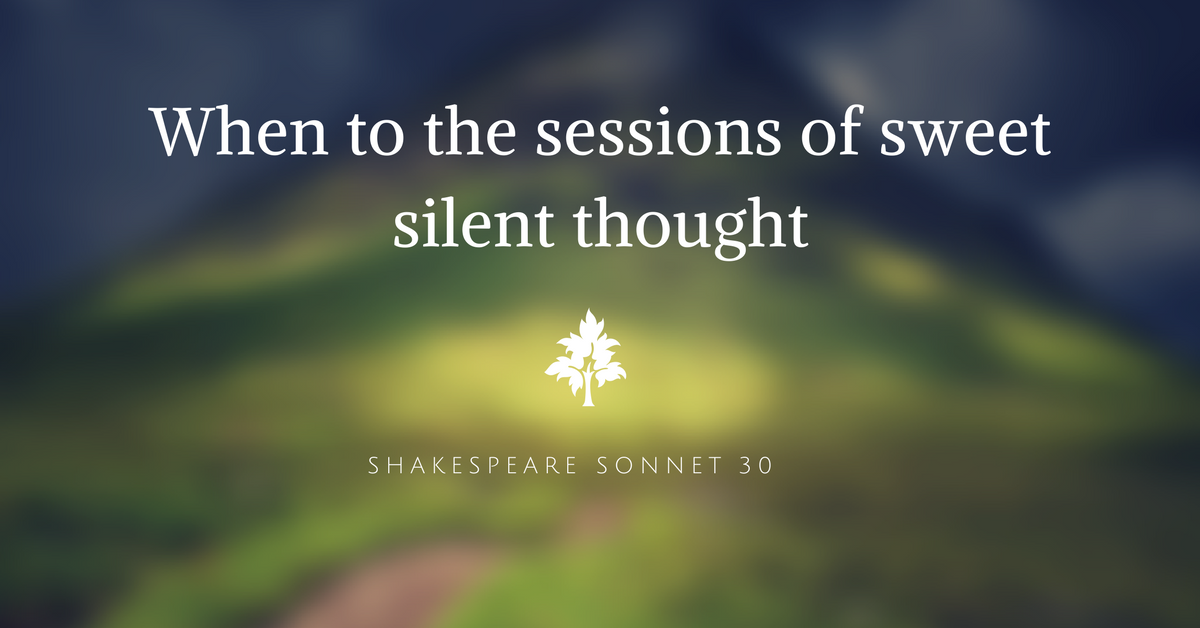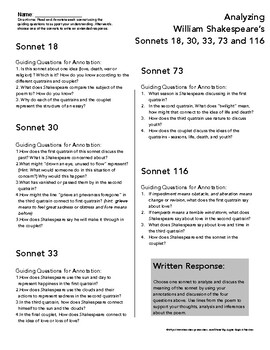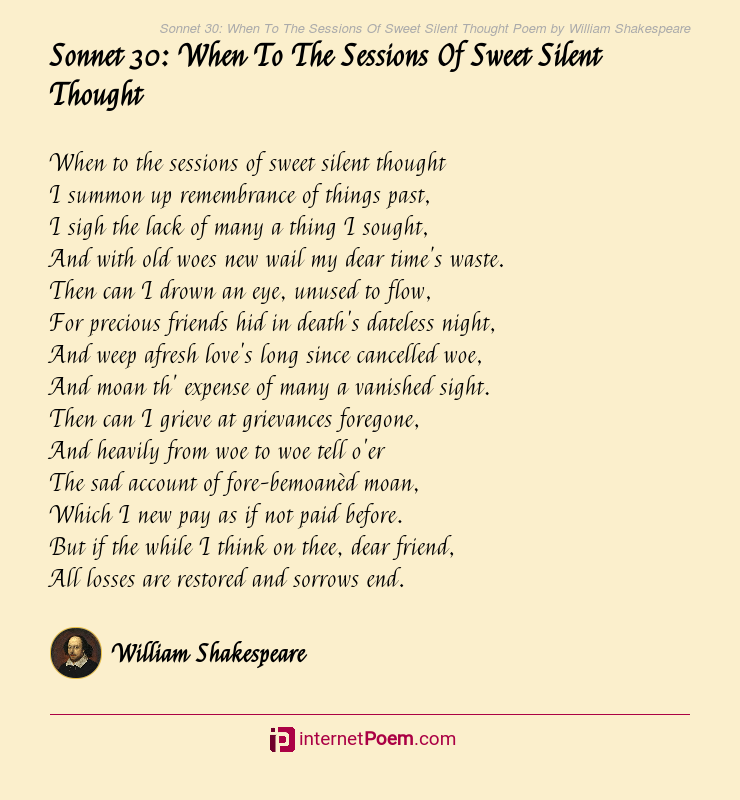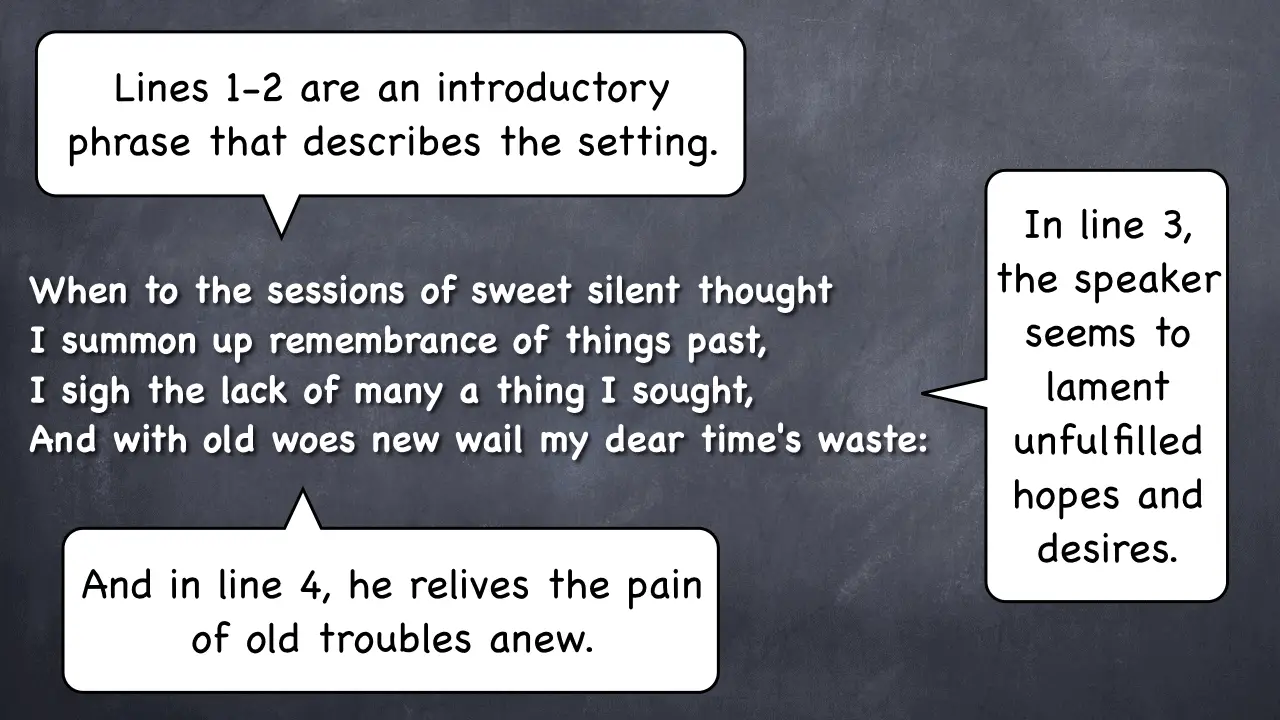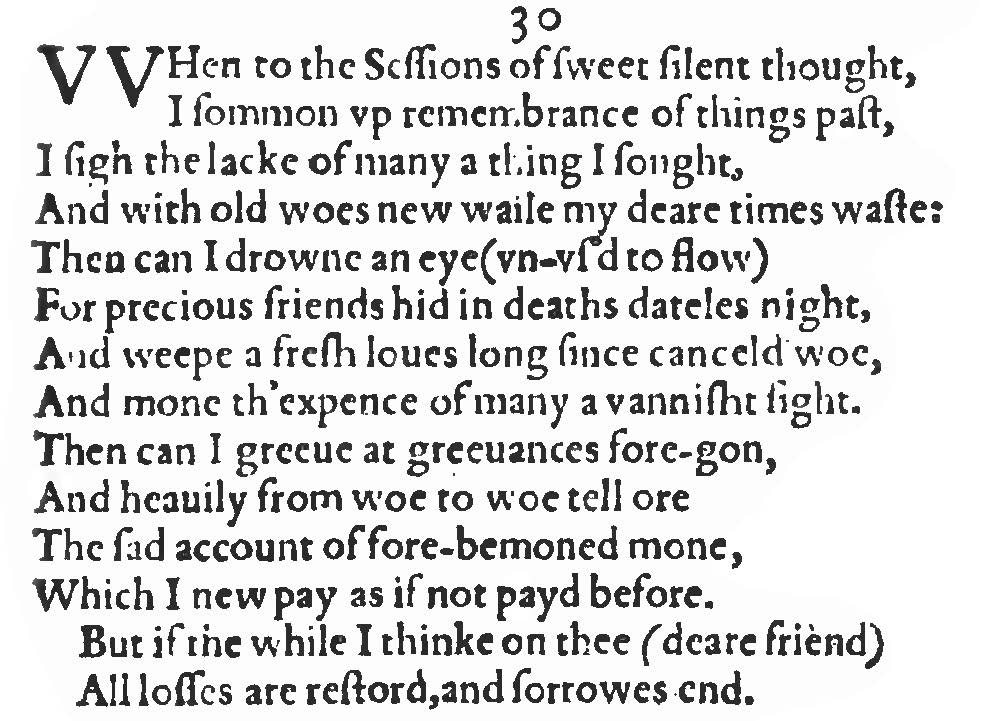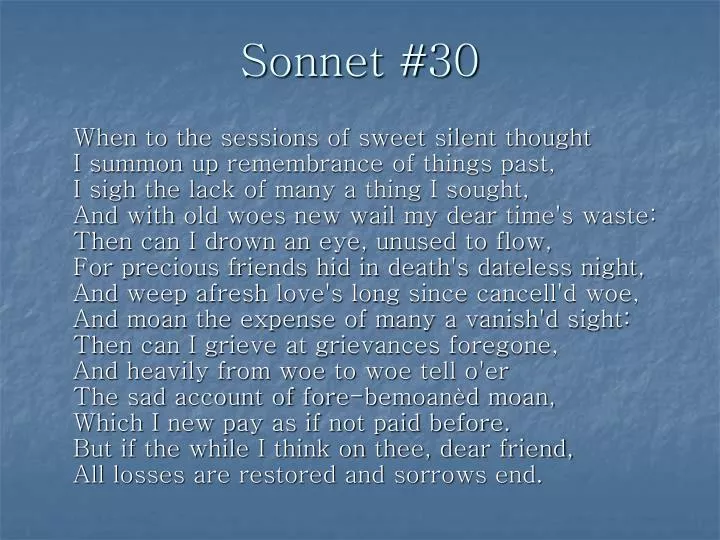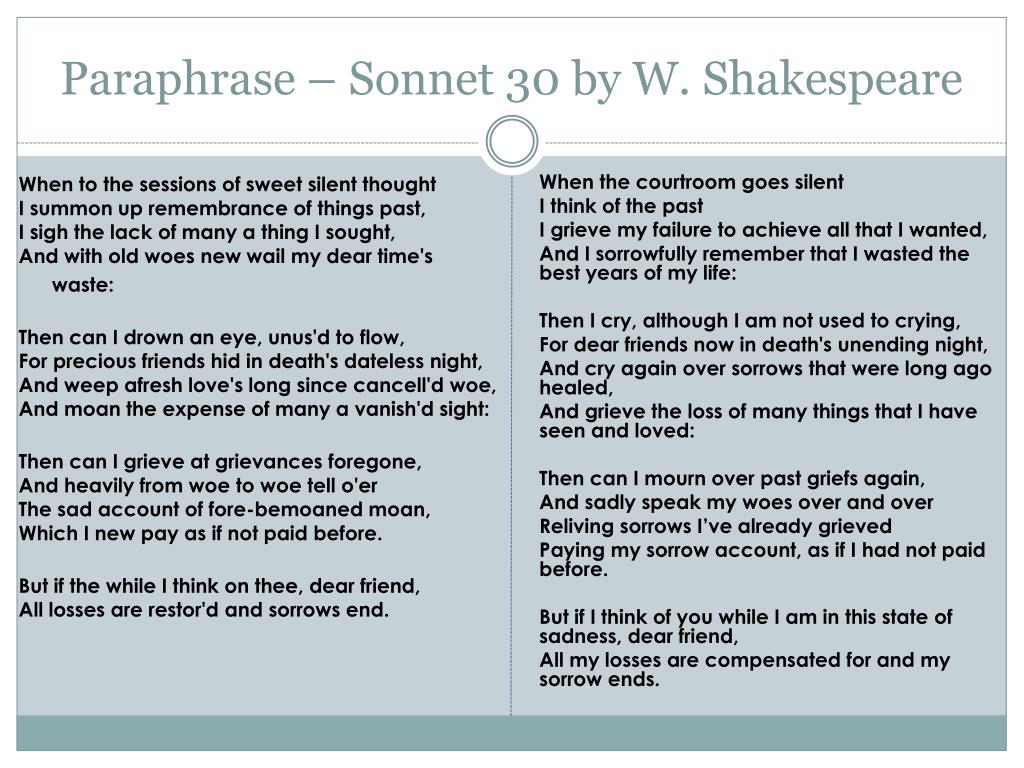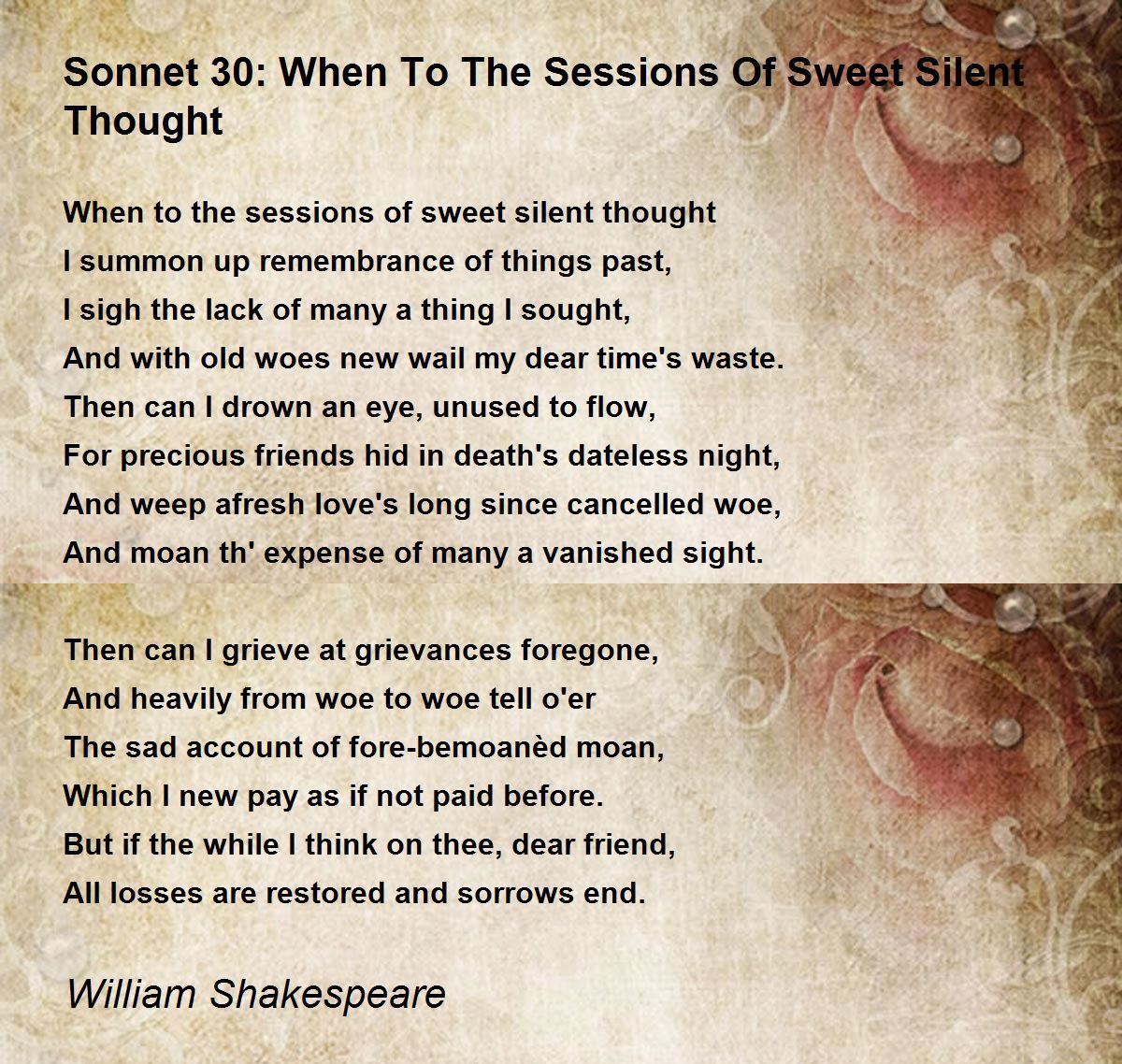
Sonnet 30: When To The Sessions Of Sweet Silent Thought - Sonnet 30: When To The Sessions Of Sweet Silent Thought Poem by William Shakespeare
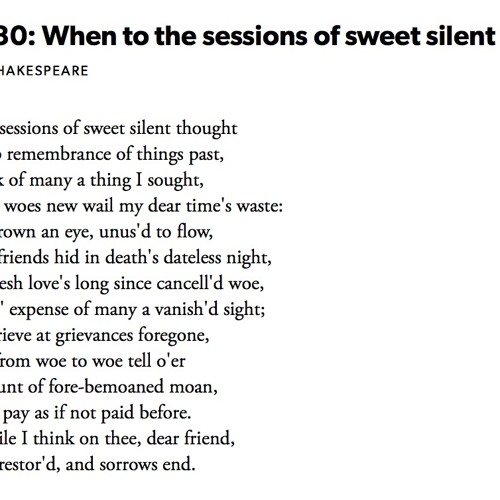
Stream 414 Sonnet 30 by William Shakespeare, read by Hugh Bonneville by Samuel West #PandemicPoems | Listen online for free on SoundCloud

Shakespeare Sonnet 30 (When to the sessions of sweet silent thought) – Shakespeare's Sonnets Music Album

William Shakespeare - Sonnet 30 | Shakespeare quotes, William shakespeare quotes, Shakespeare sonnets

Shakespeare Sonnet 30, WHEN TO THE SESSIONS OF SWEET SILENT THOUGHT | Shakespeare Sonnet 30, WHEN TO THE SESSIONS OF SWEET SILENT THOUGHT (READING) : For complete analysis check > https://goo.gl/xRGTML
